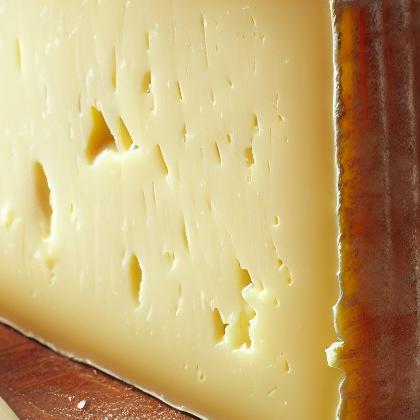Showing results for 'Pecorino Cheese'
close
Pecorino Cheese

Pecorino is the name of a family of hard Italian cheeses made from ewe's milk. The word derives from Italian pecora meaning ‘sheep’, which in turn is from the Latin pecus meaning livestock.
Pecorino Cheese Pairs With:
Food Item
Flavor Affinity Level

Did you know there are 64 food flavor pairings in my database for Pecorino Cheese available. What you are seeing above is a random list of 30 items which pair with Pecorino Cheese.
For the entire list, beautifully formatted, enter your email address and click the download button below, then I'll email it to you as a PDF.
Pecorino Cheese Properties:
| Food Property | Type | Description |
|---|---|---|
| Flavor Profile | Salty | Pecorino cheese has a distinct salty flavor due to the salt used in the cheese-making process. |
| Umami | Pecorino cheese has a rich and savory umami taste, which adds depth to its flavor profile. | |
| Texture | Firmness | Pecorino cheese has a firm texture that can range from slightly crumbly to hard, depending on the aging process. |
| Nutritional Value | Macronutrients | Pecorino cheese is a good source of protein and fat, providing essential macronutrients for the body. |
| Micronutrients | Pecorino cheese contains micronutrients such as calcium, vitamin A, and vitamin B12, which are important for overall health. | |
| Color | Natural Pigments | Pecorino cheese has a natural creamy white color, with variations in shade depending on the aging process. |
| Aroma | Volatile Compounds | Pecorino cheese has a distinct aroma characterized by its nutty and slightly fruity notes. |
| Chemical Composition | Acidity/Alkalinity (pH) | Pecorino cheese has a slightly acidic pH level, which contributes to its flavor profile and texture. |
| Cooking Behavior | Heat Conductivity | Pecorino cheese melts easily when exposed to heat, making it ideal for melting on pasta dishes or gratins. |
Food Pairing App - Version 1.2.0
